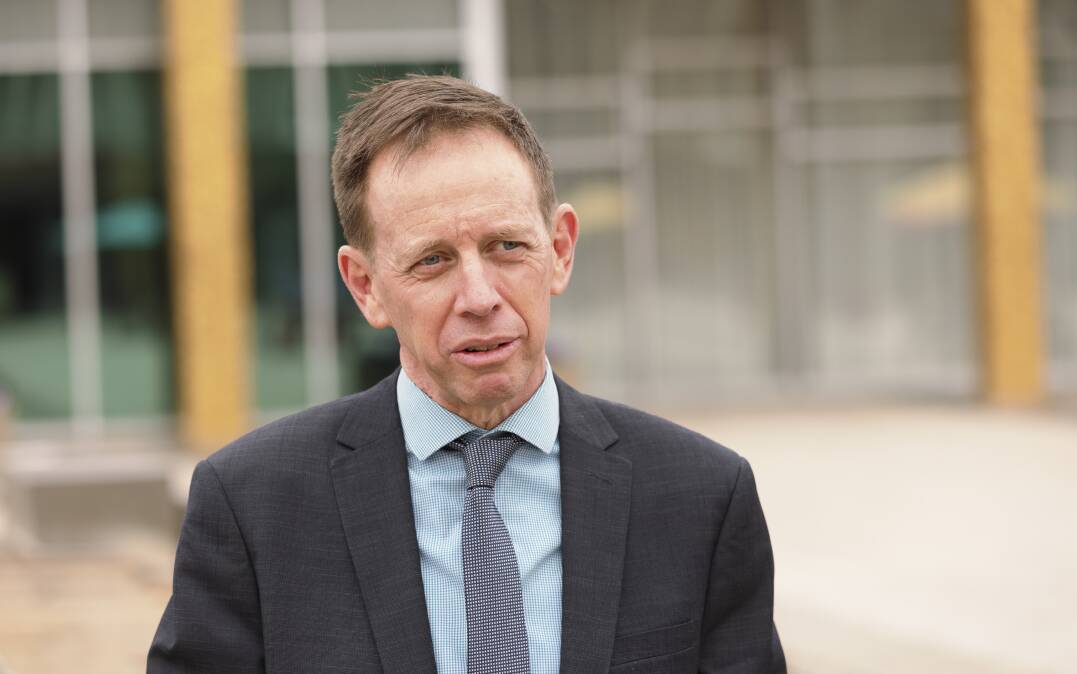
The ACT's minimum age of criminal responsibility will rise to 12 after legislation passed the territory's Legislative Assembly on Wednesday afternoon.
The age of responsibility will rise again to 14 on July 1, 2025, however those aged 12 and 13 could still be charged with serious crimes such as sexual offences and murder.
But there was disagreement between the three parties over the laws.
Shadow attorney-general Peter Cain moved amendments to only increase the age to 12 and to include an independent statutory review in the legislation in two years to explore whether it should increase to 14. However, the Liberals only support raising the age to 12.
"Informed by extensive stakeholder and community consultation, the Canberra Liberals believe that raising the age of criminal responsibility to 12 years presents the most evidence-based option to reduce youth interactions with the criminal justice system," Mr Cain said.
"There is no doubt that the minimum age of criminal responsibility is presently too young and must be raised, it is not acceptable that 10 year old children may be held criminally responsible for their actions."
Mr Cain said the Liberals did not support exceptions, saying it was legally inconsistent.
The Greens wanted the age raised to 14 and did not want any exceptions for serious crimes included in the legislation.
The exceptions will allow older children, aged 12 and 13, to be charged with murder and sexual violence offences. Advocates have criticised the exceptions and the delay in raising the age to 14.
No young people have been convicted of the charges in the ACT, the government has said.
Greens backbencher Andrew Braddock moved an amendment that would have forced the government to drop the exceptions in five years as part of a sunset clause, but this was blocked by Labor.
"I cannot stop you from voting against the sunset clause, but I can call you out and note you're voting against human rights," Mr Braddock said in a debate on the laws.
Greens leader and Attorney-General Shane Rattenbury said while his party moved the amendment, they were not prepared to let the legislation fail.
"We are not going to let this piece of legislation fall over [due to] a difference on one element of this," he said before the laws were debated in detail.
"We are committed to this significant and momentous reform that will make a real difference in the lives of young people in the ACT."
Mr Rattenbury said the change was a complex reform that would comprehensively change the criminal justice system for a young people in a way that would make the whole community safer in time.
There were a handful of children aged 10 and 11 who became involved in the criminal justice system in the ACT each year, while about 40 to 50 children aged 12 and 13, he said.
"These are young people who deserve a better chance in life, and we can design a system that actually gives them that better chance," he said.
"What we also know is that research is very clear that young people who have contact with the criminal justice system at an early age are more likely to go on to continue to offend later.
"So this is actually about making their lives better, but also making our whole community safe, because if those young people, get on a better path and don't go on to become, criminal offenders in the future. We're all better off."
Families and Community Services Minister Rachel Stephen-Smith said the staggered approach to the laws was due to the fact it was much easier to raise the age to 12 than it was to 14.
"What happens when we increase the age of criminal responsibility first to 12, which is relatively straightforward, but then to 14 which is more complicated. We know that 12 and 13 year olds are more likely to come into contact with the criminal justice system than 10 and 11 year olds," Ms Stephen-Smith said.
Ms Stephen-Smith said the government needed to ensure a more therapeutic support system was in place when the age was raised further.
"Because we've got so few 10 and 11 year olds in the system, we are confident that the director-general of the Community Services Directorate has the power and authority already to provide the appropriate response for those 10 and 11 year olds in the interim," she said.
The ACT's children and young people commissioner, Jodie Griffiths-Cook, said she thought the staged process was appropriate while further investment was made to support young people in the criminal justice system.
"I think the earlier that we can identify behaviours of concern and respond to those earlier, we can actually start to wrap supports around [children] and their families to make that difference," Ms Griffiths-Cook said.







